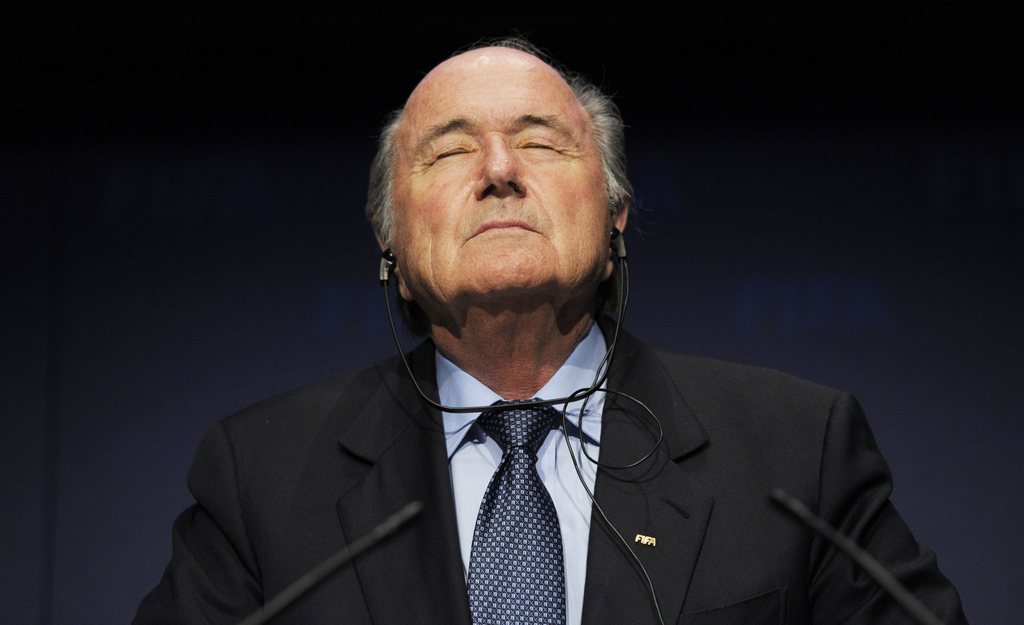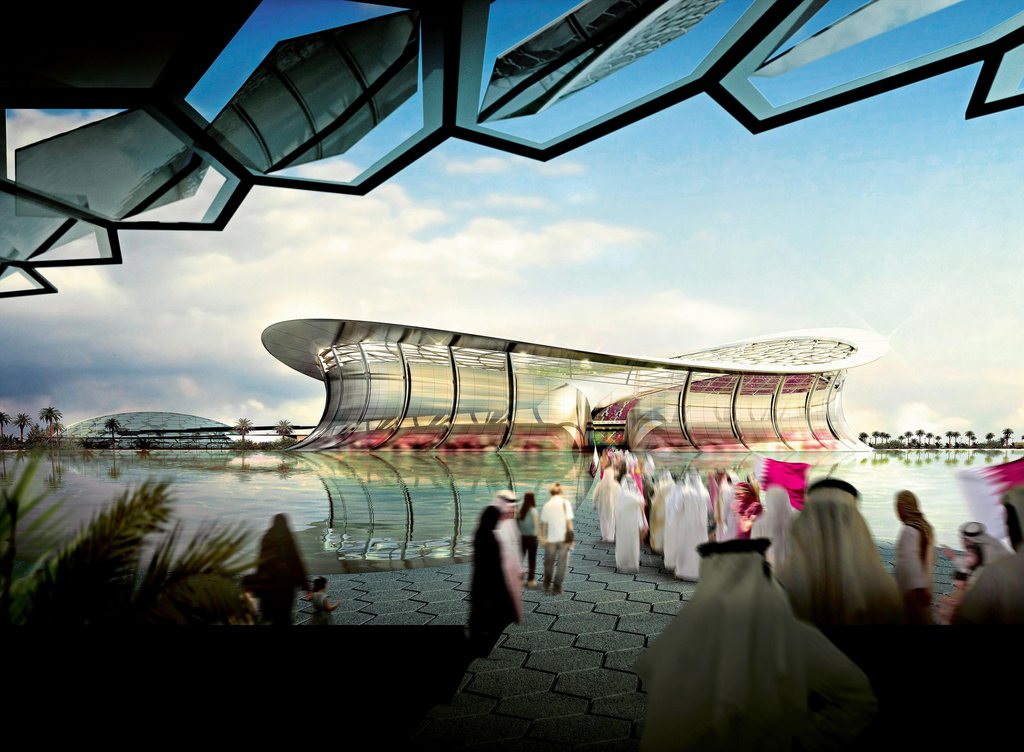Blatter eyes fifth term as FIFA’s president

Sepp Blatter will take to the stage at next week’s pre-World Cup gathering of FIFA members in São Paulo and declare his readiness to stand for re-election for a fifth presidential term if that is their will.
According to FIFA insiders, his call will be taken up by a coterie of senior members who will take to the rostrum to implore the 78-year-old president to stand again – at which point Mr Blatter will officially announce he is a candidate.
There are plenty inside football who believe revelations about secret payments allegedly to help Qatar win the 2022 World Cup may force a revote of the bidding process. But it is hard to find anyone who would bet against the emperor of football maintaining his rule over the game for another four-year term.
There is in the world of football a fear of crossing Mr Blatter. FIFA’s wealth – it made $1.4bn in revenues last year – and its patronage make it important for any football association to stay onside with the governing body and its president.
Mr Blatter joked about perceptions of his organisation in a speech at Oxford university in October. “There are those who will tell you of the supposed sordid secrets that lie deep in our Bond villain headquarters in the hills above Zurich, where we apparently plot to exploit the unfortunate and the weak,” he said.
Firestorm
Now, with the world looking on, a firestorm is licking around the FIFA citadel as Mr Blatter prepares to glad-hand the heads of its 209 member associations who will vote in next year’s presidential election.
Brazil’s World Cup preparations – the worst ever, as Mr Blatter has himself admitted – have left FIFA arriving in the country this week hoping and praying the four-week tournament passes off without serious incident.
Qatar’s trinity of problems – the scheduling of the tournament in intense summer heat, the treatment of migrant workers and those voter-influencing allegations, fiercely denied by the organisers – have plagued FIFA ever since its executive committee gave the 2022 tournament to the tiny Gulf state in December 2010.
These crises are played out against a backdrop of unrelenting criticism of governance at FIFA headquarters in Zurich, and Mr Blatter’s attempt to reform a governing body in the wake of financial impropriety among its executive committee.
But a credible challenger has yet to come forward. The incumbent has a built-in advantage. He flies thousands of miles on FIFA business, handing out FIFA money for football development projects.
Elected unopposed in 2011, he has lost some influence in Asia, the one-time fiefdom of Qatari Mohammed bin Hammam who is at the centre of the controversy surrounding the Qatar 2022 World Cup.
The former FIFA executive committee member was a key ally of Mr Blatter and helped him win the 1998 and 2002 presidential elections. His own bid for the presidency crashed amid vote-buying allegations, and some of Asia’s football leaders are less kindly disposed towards Mr Blatter.
Revitalised
But Mr Blatter continues to enjoy the support of the football confederations covering north and Central America and the Caribbean, Africa, Oceania and South America. Only Europe can be firmly placed in the anti-Blatter camp.
In the aftermath of his last election victory, Mr Blatter’s advisers admitted how weary he was looking, that his health was poor and he was embarking on a last term of office. Now he is said to be revitalised, despite the attendant crises.
But Mr Blatter is used to crisis. Never a fan of Qatar’s 2022 bid, he may well regard the fate of its World Cup with cold-hearted detachment, provided the consequences of stripping Qatar of the tournament do not hurt FIFA financially.
The biggest threat to his presidency probably comes in the next five weeks. Further revelations about financial misdemeanours could poison the atmosphere at FIFA’s São Paulo congress, while Brazil’s tournament will be as much about what happens off the pitch as on it.
Mr Blatter’s supporters say he is peeved by personal attacks and carrying the can for the sins of others. But according to Alexandra Wrage, a member of the advisory panel on reform set up by FIFA until she resigned in frustration, the tone of any organisation is set at the top.
“If you are a leader of an organisation, you are responsible for the culture of that organisation,” she said. “If the leader makes excuses for an apology, cynicism grows pretty quickly.”
Copyright The Financial Times Limited 2014
UEFA president Michel Platini flies into Brazil today ahead of what is shaping up to be a showdown between his European football governing body and Sepp Blatter’s FIFA, writes Roger Blitz.
The chances of Mr Platini being a challenger to Mr Blatter in next year’s election for the head of world football’s governing body are now slim.
Hurt by rumours over why he voted for Qatar to host the 2022 World Cup, Mr Platini has probably run out of time to mount an election campaign. The talk now in the Swiss headquarters of European football’s governing body is of finding an alternative candidate from Europe’s football bloc.
The former France captain has this week again fended off attacks on his Qatar links. UEFA suspects that FIFA has been behind stories suggesting Mr Platini was under pressure from then French president Nicolas Sarkozy to vote for Qatar in order to further trade relations.
“Unfortunately, I am no longer surprised by the circulation of unfounded rumours which aim at tarnishing my image, especially in such an important time for the future of football,” he said.
Mr Platini was prepared to announce earlier this year that he was not a candidate, but was persuaded by colleagues to wait until after the World Cup, which could play badly for Mr Blatter.
The two organisations dislike one another. UEFA believes FIFA’s numerous crises have tarnished the game’s reputation, but has despaired at Mr Blatter’s seemingly impregnable position. Relations between Mr Platini and Mr Blatter are polite in public but no more than that.
However, UEFA has not done enough to build relations with other blocs, several of which regard UEFA’s prosperity with envy and resent the frequency with which its countries host the World Cup.
As a result, any UEFA-backed candidate faces a hard task to persuade other FIFA national associations to go against Mr Blatter. Instead, UEFA is reliant on events, such as salacious media revelations or Brazilian protests at the World Cup, to tilt the argument about who should run the game.
Next week’s FIFA Congress promises to be a volatile gathering. UEFA is weighing up how to respond to Mr Blatter’s plan to stand for a fifth term. Reports of a protest are exaggerated, says FIFA. But UEFA is gearing up for a fight, perhaps by criticising FIFA’s governance without explicitly mentioning Mr Blatter.
It may not make Mr Platini’s candidacy any more likely, but it will at least enable his disgruntled European colleagues to air some grievances.
Copyright The Financial Times Limited 2014

In compliance with the JTI standards
More: SWI swissinfo.ch certified by the Journalism Trust Initiative











You can find an overview of ongoing debates with our journalists here . Please join us!
If you want to start a conversation about a topic raised in this article or want to report factual errors, email us at english@swissinfo.ch.